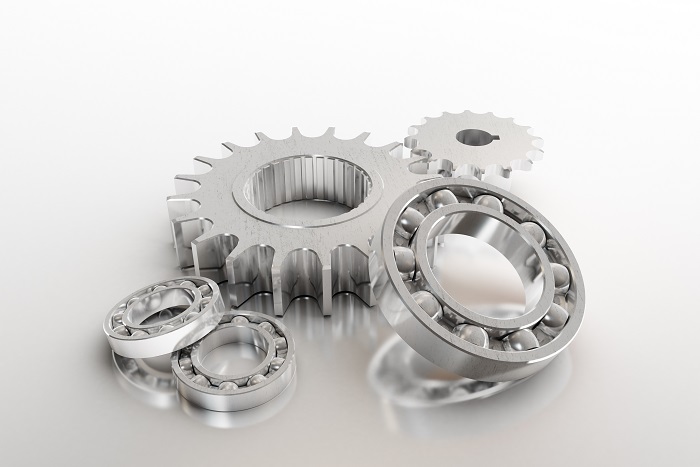The term parts washing fluid applies to different yet similar industrial cleaning agents: cleaners used in enclosed parts washing systems, and cleaners used in open air work stations. In this entry, we look at the basic pros and cons of using foamless parts washer fluid for industrial parts cleaning, both for enclosed parts washer cleaning and open air operations.
Pro: No Foaminess in the Parts Washer
If you’ve ever overfilled a dishwasher with foaming detergent, you have may have encountered a flow of suds that required multiple mopping sessions to remove all of the soap residue from the floor — residue that attracts dirt faster than a clean floor would.
A similar event can happen with parts washers that aren’t designed for foaming action solvents. If you use an industrial model parts washer, it may be sealed tight enough to contain the foam. The question is whether the washing cycle is thorough enough to remove the foam. If it’s a quick washing cycle with no anti-foaming agent, you could open the machine and find suds on work pieces and throughout the wash chamber, necessitating at least one more rinse cycle.
Con: No Cleaning From Foaming Action
Sometimes, foaming action is more than a byproduct from a cleaner. The foam is designed to encapsulate a workpiece, slowly cleaning away tough accumulations from any number of substances — from grease, to bitumen, to tar — to leave the piece looking as clean as new.
Letting the foam work its magic can result in using less solvent, while still powering away thick coatings of gunk (often making the gunk easier to remove using moderate water pressure).
Pro: Not Always Good for Fast Cleaning
Whether you use it in a parts washer or an open air cleaning station, a parts washing fluid that has foaming action can require a longer cleaning operation than using a foamless parts washer fluid.
If you’re treating a limited number of parts that must be treated quickly to get them back in action, a slow foaming cleaner often isn’t your friend. A better option is choosing a foamless parts washer fluid you can use in a parts washer or workstation to consistently achieve the quick turnround you need.
Con: Can End Up Consuming More Fluid
If properly formulated, a small reservoir of parts cleaning fluid can produce a significant amount of cleansing foam. If you have the flexibility to use a foaming cleaner that has a long turnround time, your solvent expenditures could be lower than if you used a foamless parts washing fluid that requires using more solvent to perform the same cleaning operation.
Conclusion
Foamless parts washer fluid and foaming parts washing fluid both have a place in industrial cleaning. Some organizations need one, some need the other, and still other organizations need both.
For assistance selecting a foaming or foamless parts washer fluid for industrial cleaning, contact Ecolink today at (800) 563-1305, or send us an email through our contact form. We look forward to helping you make the right selection!















